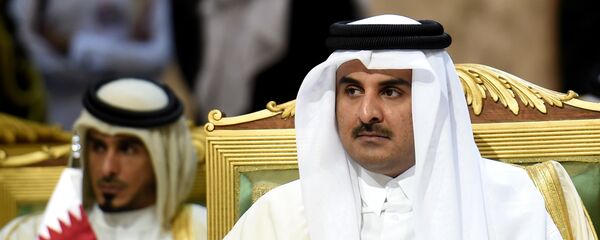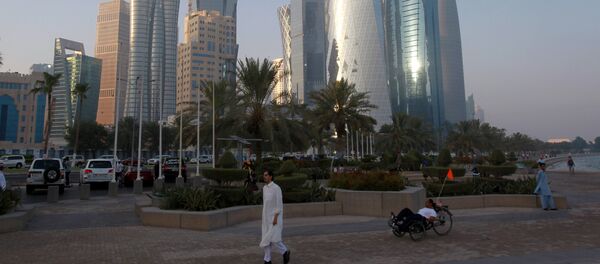In response, Doha described the demands as "unrealistic" and urged for them to be revised after being given 10 days to comply. According to the Qatari foreign minister, the sanctions imposed are "illegal" and an attempt at tampering with the nation’s sovereignty.
In an interview with Sputnik, Turkish political commentator Soli Özel suggested that Qatar would continue to resist pressure from its neighbors in the ongoing diplomatic crisis.
The 13-point list demands that Qatar, among other things, cut its ties with Iran, close a Turkish military base on its soil and shut down Al Jazeera and its affiliates. Other demands call on Doha to publically denounce relations with Islamist groups, end suspected financing of terrorism and hand over persons designated as terrorists by Saudi Arabia, the United Arab Emirates, Bahrain and Egypt.
According to Özel, the ultimatum indicates that Arab countries want high-level political bargaining with Qatar.
"The crisis in the Middle East resulted in the current standoff between Qatar and a group of countries, including Saudi Arabia, Bahrain, the UAE and Egypt. In fact, their requirements for Qatar prove that they want to drive a bargain with Doha at a high level," Özel told Sputnik Turkey.
The expert noted that there are certain requirements that Doha is unlikely to meet, including cutting ties with Iran, closing a Turkish military base and shutting Al Jazeera.
"Against expectations, Qatar has been a tough nut to crack. I suggest that Qatar will stand to the end against the pressure from the other Gulf States because Doha has enough resources and potential for this," Özel concluded.
On June 5, a number of countries, including Saudi Arabia, the UAE, Bahrain and Egypt, cut diplomatic ties with Qatar and embargoed all sea, air and land traffic to the country, accusing Doha of supporting terrorist groups, particularly the Muslim Brotherhood terrorist movement, as well as of interfering in other countries' domestic affairs. Several other states in the region have reduced diplomatic relations with the country.
Formally, the crisis was triggered after a Qatari news agency published a statement of Qatari Emir Sheikh Tamim bin Hamad Al Thani calling for the establishment of relations with Iran and expressing support for the Muslim Brotherhood.
Doha later said that the agency's website was hacked and there was no such statement from the Qatari leader. Nevertheless, Saudi Arabia, the UAE and Bahrain did not accept the explanation. A number of other states, including Turkey and Kuwait, have been engaged in mediating the crisis.




